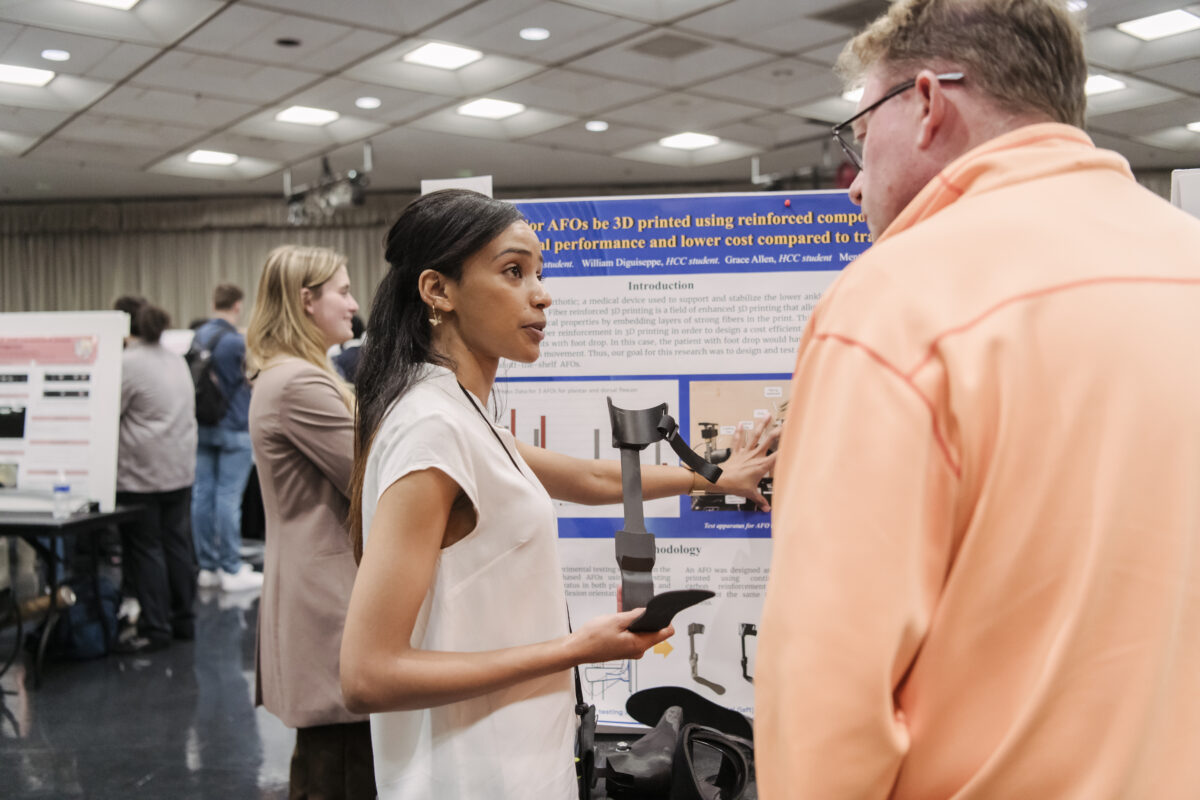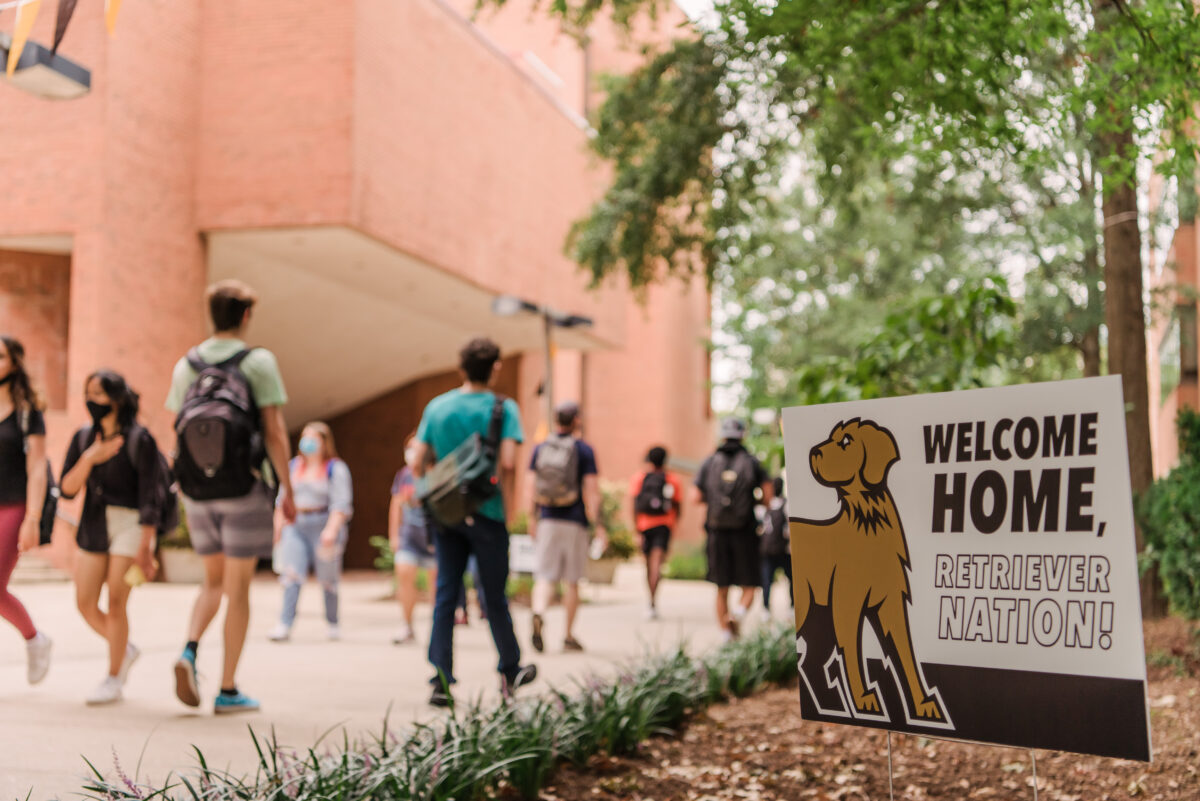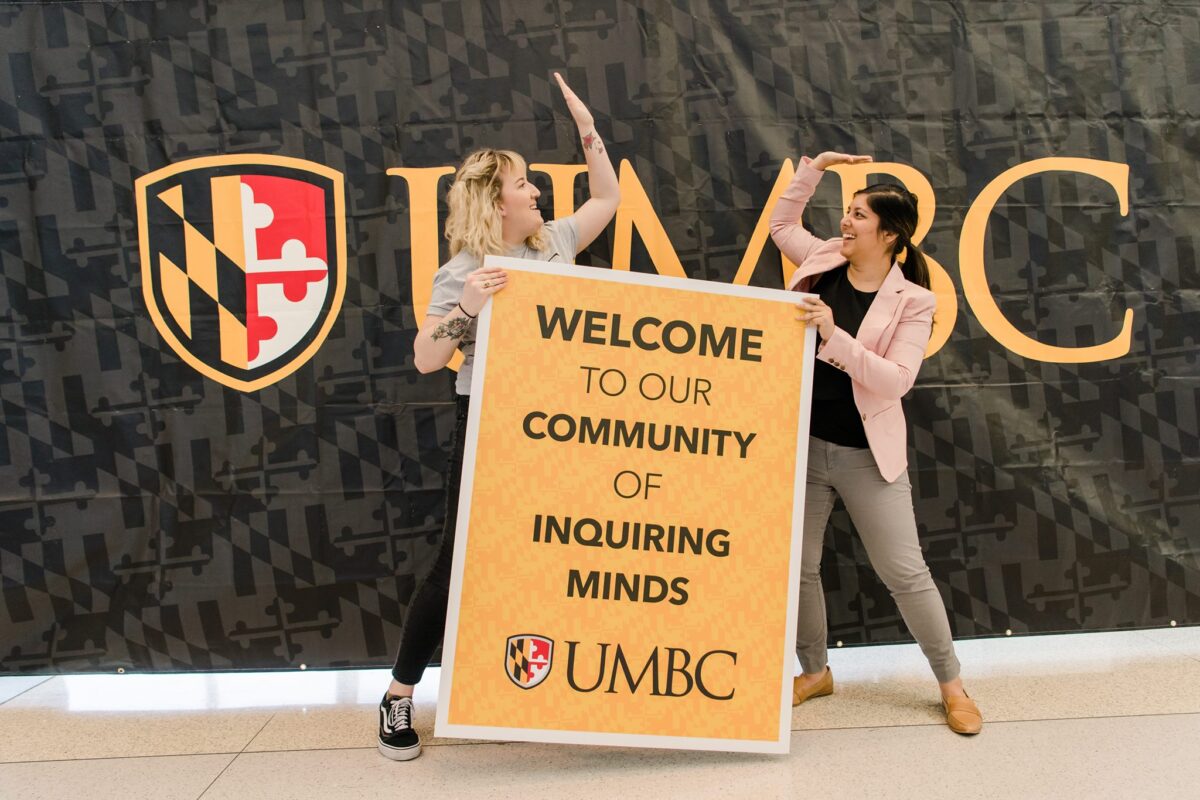Supporting Gender Equity in Science & Technology
With the kickoff of the new ADVANCE program, UMBC is showing that its commitment to diversity extends far beyond its student body. Funded by a $3.2 million grant from the National Science Foundation, ADVANCE gives UMBC the opportunity to develop and implement policies that will promote the recruitment and advancement of women faculty in science, technology, engineering and math (STEM).
The recruitment and advancement of women faculty within the STEM fields still proves to be a challenge at universities across the country. While most of the obvious institutional barriers to the advancement of women in academia have been eliminated, several factors, including an increased share of family obligations and fewer opportunities for mentorship and networking, contribute to keeping women off the tenure track or out of senior research and administrative positions in greater numbers than their male colleagues.
Leading the ADVANCE group is UMBC President Freeman Hrabowski, who is the projects principal investigator. Lynn Zimmerman, professor of biological sciences and vice provost for academic initiatives, serves as the lead co-principal investigator for the project. The projects other co-PIs are Govind Rao, professor and chair of the Department of Chemical and Biochemical Engineering, Janet Rutledge, associate dean of the Graduate School, and Marilyn Demorest, professor of psychology and vice provost for faculty affairs. Faculty associates are Jack Prostko, director of the Faculty Development Center, and Phyllis Robinson, associate professor of biological sciences. Mary Ellen Jackson, director of ADVANCE completes the group.
UMBCs successful ADVANCE proposal, written by Claudia Morrell, director of the Center for Women and Information Technology, was the result of months of hard work by many people. Says Zimmerman, ADVANCE truly does build on the work of UMBCs WISE (Women in Science and Engineering) group over the past two years. Through this group, women faculty from the STEM departments could gather to brainstorm about the challenges of being a successful STEM faculty member.
Now in its second year, the NSFs ADVANCE program has given only 16 other institutional transformation awards to schools such as the University of Michigan, Georgia Tech, and University of Washington. UMBC was one of nine schools chosen this year to receive grants from the 72 applications submitted. Over the next five years, the UMBC ADVANCE team will be implementing a series of initiatives to encourage the advancement of current female faculty members, to increase the numbers of women, especially minority women, hired as faculty within the STEM departments, and educate women post-docs and graduate students on how to successfully navigate the faculty career pathway.
While the ADVANCE program focuses on the needs of women faculty in the STEM fields, its benefits will be felt university-wide. This program really shows that whats good for women, is good for the entire university, says Zimmerman. Our students are best served by a diverse faculty and the faculty benefit from policies that allow them to balance professional and personal obligations effectively.
The campus community can meet members of the ADVANCE team at the ADVANCE inaugural event, featuring Kathie Olsen, assistant director for President Bushs Office of Science and Technology Policy, this Thursday, February 26 at 3:30 p.m. in the Albin O. Kuhn Library Gallery.



